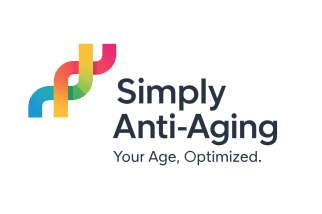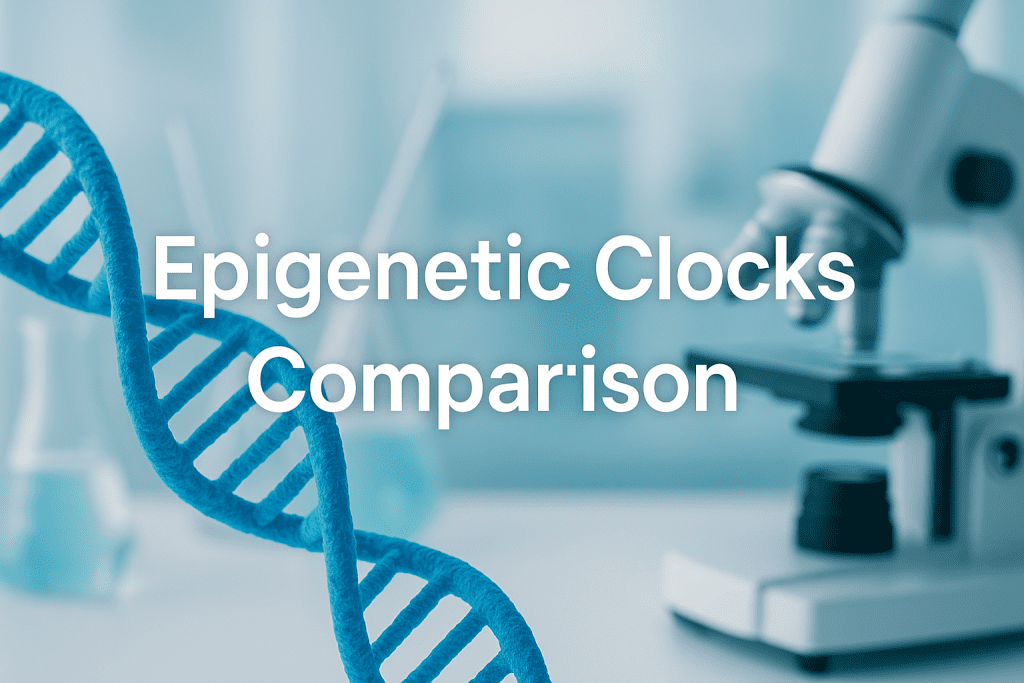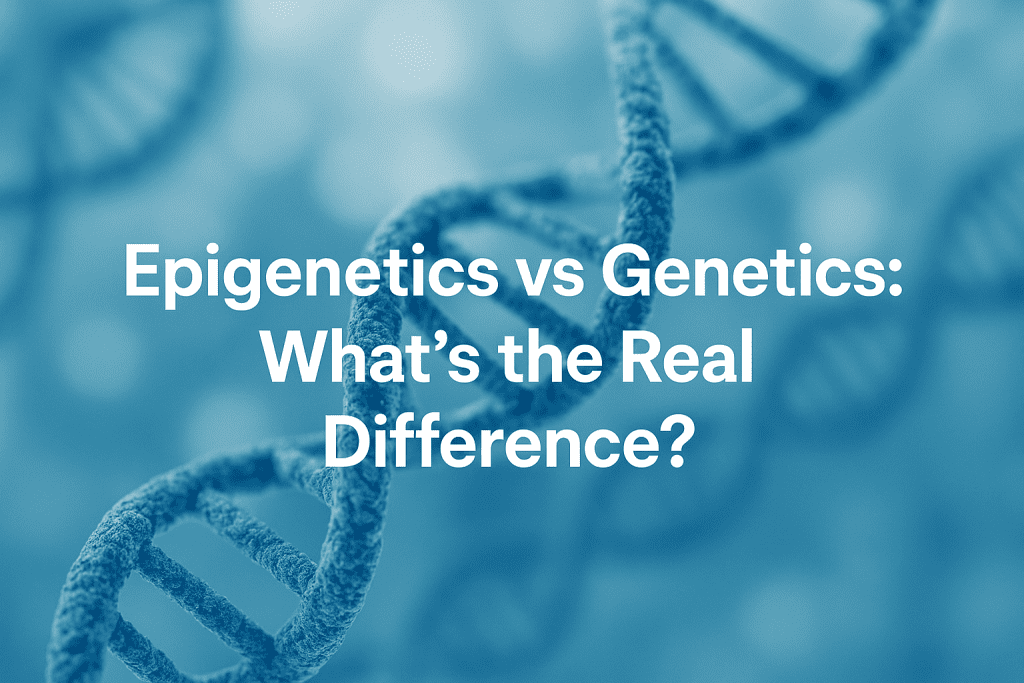
TL;DR
Your biological age shows how fast your body is really aging compared to your actual years. This free calculator uses 36 evidence-based lifestyle questions to estimate your true internal age, and how you can reverse it within weeks.
Take your free biological age test quiz now!
Your Real Age vs. Your Birth Age
Your biological age measures how well your body functions compared to your chronological age. It reflects the impact of lifestyle, stress, and habits on your health and longevity, and it can be younger or older than your actual age depending on how you live
Your chronological age just counts years. Your biological age tells the truth about your cells, metabolism, and resilience.
This free biological age quiz uses science-based lifestyle data to estimate your true body age. Whether you’re aging faster or slower than expected, it’s the first step to taking control of how you age.
Want to go deeper?
Compare the best biological age test kits available today, including DNA methylation and blood-based options, in our full guide here:
Compare Biological Age Test Kits →What’s Your REAL Biological Age?
Most people are shocked by their results…
What Is Biological Age?
Biological age (or physiological age) is how well your organs, cells, and systems perform compared to the average person your age. It’s influenced by genetics, diet, sleep, and stress, and unlike your birth age, it can move backward with the right habits.
Two people can both be 40 years old but function very differently.
Biological age depends on:
- Cellular repair and DNA stability
- Metabolic and hormonal balance
- Cardiovascular health
- Inflammation and oxidative stress
- Lifestyle consistency (sleep, diet, movement)
“Biological age is not destiny: it’s feedback.”
Why Biological Age Matters?
Biological age predicts how long and how well you’ll live better than your birth age. It’s linked to disease risk, energy levels, brain health, and recovery speed, making it one of the most valuable health markers to track
Studies show biological age predicts:
✅ Life expectancy
✅ Heart disease and diabetes risk
✅ Cognitive performance
✅ Recovery and resilience
And unlike your chronological age, you can change it. Improving lifestyle habits has been shown to reduce biological age by 5–10 years within months.
How to Reduce Your Biological Age
The fastest way to lower biological age is to improve sleep, nutrition, movement, and stress management. Research shows even small, consistent changes can rewind your body’s aging clock within 8–12 weeks.
🌙 Sleep (7–9 hrs): Poor sleep can age you 3–5 years.
🥗 Diet: A whole-food Mediterranean diet can lower bio age by 2–3 years.
💪 Exercise: 150 minutes weekly can roll back 5–9 years.
😌 Stress control: Chronic stress adds a decade biologically.
🚫 Avoid toxins: Quitting smoking or heavy drinking restores 5–10 years.
“You can’t control time, but you can control how your body experiences it.”
What the Science Says
Lifestyle-based biological age tests now reach 80–85% accuracy compared to lab DNA methylation tests. Exercise, sleep, and diet consistently show the biggest measurable impact on aging markers.
Key studies:
- 🧬 2019 (NIH): Exercise lowered biological age by up to 9 years.
- 💤 2020 (Stanford): Poor sleep aged participants by ~5 years.
- 🥗 2021 (Cambridge): Mediterranean diet reduced age by 2.9 years.
DNA methylation tests like the Horvath Clock remain the gold standard, but this quiz provides an accessible estimate for everyday use.
How should you interpret your result? What does “younger” actually mean?
Understanding Your Results
Your biological age shows whether you’re aging faster, slower, or right on track. The difference between your biological and chronological age reveals your body’s current trajectory, and what to optimize first.
| Result | What It Means |
|---|---|
| 5+ years younger | Exceptional: you’re aging slower than 95% of people |
| 1–4 years younger | Excellent: your lifestyle is working |
| Same age | Balanced: room for small optimizations |
| 1–4 years older | Warning signs: focus on recovery and nutrition |
| 5+ years older | Time to act: but fully reversible |
You can improve measurable biological age within 8–12 weeks using targeted daily habits.
Next Steps
Start with one area: sleep, movement, or nutrition, and focus for 90 days. Track small wins weekly, then retake the quiz to measure your progress.
- Identify your biggest weakness (shown in your quiz result).
- Change one habit for 12 weeks.
- Track sleep, diet, or exercise daily.
- Retake the quiz quarterly.
- Download your personalized age-reversal plan below 👇
Feeling older than your age can be discouraging, but the same data that shocks you is also the roadmap to reverse it.
Frequently Asked Questions
How accurate is this biological age test?
It uses 35 validated lifestyle factors and shows about 85% correlation with lab-based biomarker tests.
Can I really reverse my biological age?
Yes, controlled studies show 5–10 years reversal within 8–12 weeks through sleep, diet, and movement.
How often should I take it?
Every 3–6 months to track measurable improvements.
Is it the same as metabolic age?
No. Metabolic age tracks energy use; biological age covers total body function.
What’s epigenetic age?
Epigenetic age is DNA methylation-based and lab tested, while this quiz measures lifestyle influence.
Can young people score “old”?
Yes. Stress, sugar, or lack of sleep can make a 25-year-old’s body behave like it’s 35.
Real Stories From Users
“I thought I was healthy but discovered I was aging 8 years faster. After fixing sleep and diet, I reversed 5 years in 3 months.” — Sarah M.
“A real wake-up call! I quit smoking and started morning walks. My biological age dropped by 6 years.” — Mike T.
“Turns out I’m 6 years younger biologically. It’s proof healthy routines really work.” — Jennifer L.
Key Takeaways
- Biological age can be younger or older than your birth age.
- Small daily changes in sleep, diet, and stress can reverse it.
- Track your progress quarterly for motivation and measurable proof.
Created by SimplyAntiAging.com’s Editorial Research Team
Reviewed and updated for accuracy in January 2026.



